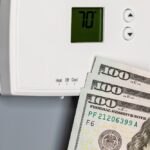
Heating Myths Debunked: What You Should Really Know About Your System
Heating systems are an essential part of our homes, especially in cooler seasons. However, several myths and misconceptions surround heating systems, and many of these myths lead to increased energy costs and inefficient heating. In this guide, we’ll bust common heating myths and share energy-saving tips for heating that can help you maintain a cozy home while cutting down on energy expenses. If you’re looking to keep your system in top shape, whether through personal care or hiring heating repair services in Tampa, FL, this guide will set you on the right track.
Understanding the Basics of Home Heating Systems
In most homes, heating systems fall into one of these common categories:
- Furnaces – which heat air and circulate it throughout the home.
- Heat pumps – which use electricity to move heat rather than generate it, making them more energy-efficient in certain climates.
- Boilers – which use water to distribute heat throughout the home.
- Radiant heating – a system that delivers heat directly to floors or walls, warming up the space through infrared radiation.
Each of these systems has unique characteristics, efficiencies, and maintenance needs. By understanding your system type, you can better identify which myths apply and which don’t.
Myth 1: Cranking Up the Thermostat Heats Your Home Faster
One of the most common misconceptions about home heating is the belief that turning up the thermostat to a higher temperature will warm your home faster. This myth leads to many people setting the thermostat at an extreme level, only to feel disappointed when the home doesn’t warm up immediately.
The Truth
Most heating systems work at a constant rate, meaning that setting the thermostat higher does not accelerate heating. Instead, you risk overshooting a comfortable temperature, causing the system to run longer than necessary, wasting energy and raising your bill. A better approach is to set the thermostat to your desired temperature and allow the system to warm your home gradually.
Energy-saving Tip:
Use a programmable thermostat to automate temperature adjustments based on your schedule, which helps maintain comfort while conserving energy. For instance, set a lower temperature when you’re away or sleeping and let it adjust to your desired warmth before you get home.
Myth 2: Closing Vents in Unused Rooms Saves Energy
Another widespread myth is that closing vents in rooms you don’t use will save energy by redirecting the heat to other parts of the house. This advice may seem logical, but it can actually cause more harm than good.
The Truth
Heating systems are typically designed to distribute heat evenly throughout your home. Closing off vents can unbalance this system, causing pressure buildup and strain on the system’s components, potentially leading to costly repairs. Additionally, closing vents can create cold spots, which might make your system work harder to maintain a consistent temperature.
Energy-saving Tip:
Instead of closing vents, consider sealing drafts and insulating your home. Good insulation keeps warmth where it’s needed, reducing the load on your heating system without causing stress on any of its parts.
Myth 3: Leaving the Heating on Low All Day Is More Efficient Than Adjusting It
Some people think it’s more efficient to leave the heating on at a low setting all day instead of adjusting it when they’re away. While it sounds like a reasonable strategy, this approach usually results in unnecessary energy consumption.
The Truth
Turning down the thermostat when you’re not at home or asleep is a proven way to reduce energy use. By using a programmable thermostat, you can control the temperature more effectively, ensuring the system operates only when it’s necessary. If your system runs consistently, even at a low setting, it will still consume energy, which translates to higher bills.
Energy-saving Tip:
Set your thermostat to reduce the temperature by 7-10 degrees while you’re at work or sleeping. This adjustment can save you up to 10% on your heating costs annually, according to the U.S. Department of Energy.
Myth 4: Heat Pumps Are Ineffective in Cold Weather
There is a persistent myth that heat pumps are inefficient in cold weather, leading people to shy away from them, especially in cooler climates. However, modern heat pumps are designed to perform efficiently even when outdoor temperatures drop.
The Truth
Heat pumps are indeed more efficient in moderate climates, but technological advancements have significantly improved their performance in colder weather. Today’s heat pumps can extract heat from the air even at temperatures below freezing, thanks to enhanced refrigerants and advanced designs.
Energy-saving Tip:
If you live in a region with mild winters, a heat pump is an excellent choice for efficient heating. For those in colder areas, look for a cold-climate heat pump or consider a hybrid system that combines a heat pump with a furnace for optimal efficiency.
Myth 5: Bigger Heating Systems Work Better
Many homeowners believe that bigger is better when it comes to heating systems, thinking that an oversized system will heat their home more effectively. Unfortunately, this misunderstanding can lead to excessive energy consumption, discomfort, and frequent repairs.
The Truth
A heating system that’s too large for your home will turn on and off frequently, a process known as short cycling. This leads to increased wear and tear on the system, reduced energy efficiency, and uneven heating. The right-sized heating system, chosen based on your home’s square footage, insulation, and climate, will provide more efficient and consistent heating.
Energy-saving Tip:
Work with a professional to calculate the appropriate size for your heating system. Many heating repair services in Tampa, FL, offer energy audits and can help you select the best option for your home.
Myth 6: You Don’t Need to Service Your Heating System Regularly
Some people skip regular maintenance, thinking that if their heating system is working, it doesn’t need attention. However, just like a car, your heating system benefits from regular check-ups to ensure it’s functioning optimally and efficiently.
The Truth
Regular maintenance is essential for any heating system, whether it’s a furnace, heat pump, or boiler. Over time, dust and debris can accumulate, reducing efficiency and increasing the risk of breakdowns. Regular servicing can also catch small issues before they turn into costly repairs.
Energy-saving Tip:
Schedule an annual maintenance appointment before the winter season begins. Many heating repair services in Tampa, FL, offer maintenance packages that include cleaning, inspection, and tune-ups, ensuring your system runs smoothly and efficiently all season long.
Myth 7: Electric Heaters Are Cheaper Than Central Heating
When trying to save on heating costs, some people turn to electric space heaters, assuming they are cheaper to run than a central heating system. While electric heaters can be effective for small spaces, using them throughout the home can quickly add up in terms of energy expenses.
The Truth
Electric heaters generally consume a significant amount of electricity, which can drive up your utility bills if used frequently. For heating entire homes, central heating systems or heat pumps are usually more efficient and cost-effective.
Energy-saving Tip:
If you’re trying to warm just one room, a space heater can be a temporary solution. But for long-term heating, it’s best to rely on a well-maintained central system or a heat pump, which will offer better efficiency across your home.
Choosing the Right Heating Strategy
Understanding how heating systems work and debunking common myths is the first step toward creating a warm and energy-efficient home. By being mindful of these misconceptions and implementing practical energy-saving tips for heating, you can save on utility bills and reduce unnecessary wear on your heating system.
Quick Recap:
- Avoid cranking up the thermostat — Set it at your desired temperature and let it gradually reach that level.
- Keep vents open — Allow for proper airflow and maintain the efficiency of your heating system.
- Turn down the thermostat when you’re away — A programmable thermostat can help automate this.
- Trust modern heat pumps — They’re efficient even in colder weather conditions.
- Opt for the right size heating system — Bigger isn’t always better.
- Regular maintenance is key — A well-maintained system will work better and last longer.
- Use electric heaters sparingly — They’re best for occasional use, not a complete solution for home heating.
For those in Tampa, FL, seeking heating repair services or advice on maintaining efficient heating, partnering with a knowledgeable professional can make a significant difference. Taking the right approach with your heating system will lead to a warmer, more comfortable home and lower energy bills.
Need a HVAC Contractor in Tampa, FL?
Kenny’s Air Conditioning & Heating Services, Inc. is a family-owned and -operated HVAC contractor that services our community with legendary results. Our team strives to provide dependable and quality service by only using the best, most energy-efficient equipment. We are as concerned with your unit as you are and will always offer advice on how to increase its efficiency and reliability. From maintenance to installations, we have you covered. We are also the highest rated Trane comfort specialists in Tampa, which means we met Trane’s stringent standards in service as well as customer satisfaction. Contact us today!
More...
Categorised in: Heating Systems




